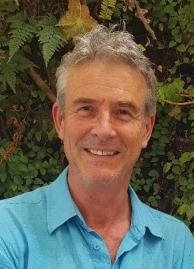
Neil Hunter was born in 1954 in Yorkshire, U.K., and he is the Krebs Professor of Biochemistry in the Department of Molecular Biology and Biotechnology at the University of Sheffield, U.K. He obtained his B.Sc. Degree at the University of Leicester in 1975, where the lectures of Professor Hans Kornberg and a laboratory project with Professor Peter Henderson inspired a lifelong interest in metabolism and bioenergetics. Wanting to learn about photosynthesis, Hunter moved to Bristol University, where Professors Trevor Griffiths, Owen Jones and Tony Crofts were studying many aspects of this topic, from pigment biosynthesis through to electron transport. Hunter’s doctoral research on membrane assembly in bacterial photosynthesis, supervised by Owen Jones, was followed by a postdoctoral fellowship at Rutgers University, with Professor Robert Niederman, from 1978-80. Research on light-harvesting complexes and membrane assembly was hampered at that time by a lack of molecular genetic tools so Hunter returned to Bristol to learn about molecular biology in the laboratory of Professor Geoff Turner. Transposon mutagenesis was used to find the genes encoding the enzymes for bacteriochlorophyll and carotenoid biosynthesis and a toolkit was developed for site-directed mutagenesis of photosynthetic complexes. In 1984, Hunter was appointed to a Lectureship at Imperial College, London, attached to the group of Professor James Barber. He returned to his native Yorkshire in 1988 to a Senior Lectureship at Sheffield University. In 1996 Hunter was awarded a D. Sc. by Bristol University, and he was elected to the Fellowship of the Royal Society in 2009. Neil Hunter has published over 320 papers on chlorophyll and carotenoid biosynthesis, the spectroscopy, structures and nanotechnology of photosynthetic complexes, and he has used atomic force microscopy to reveal the organisation of the bacterial, cyanobacterial and plant photosynthetic apparatus.
